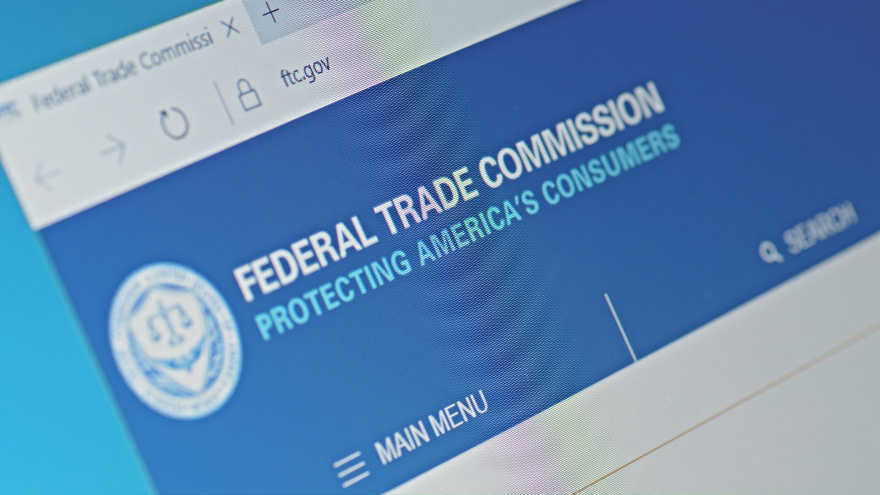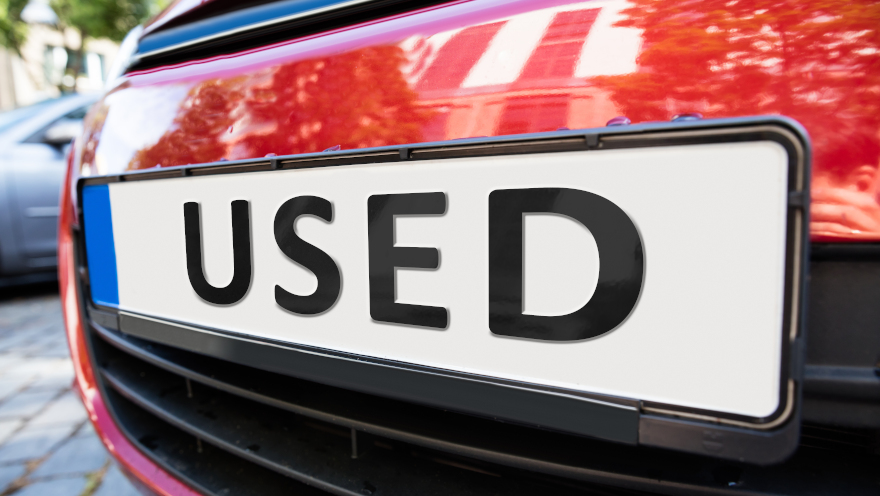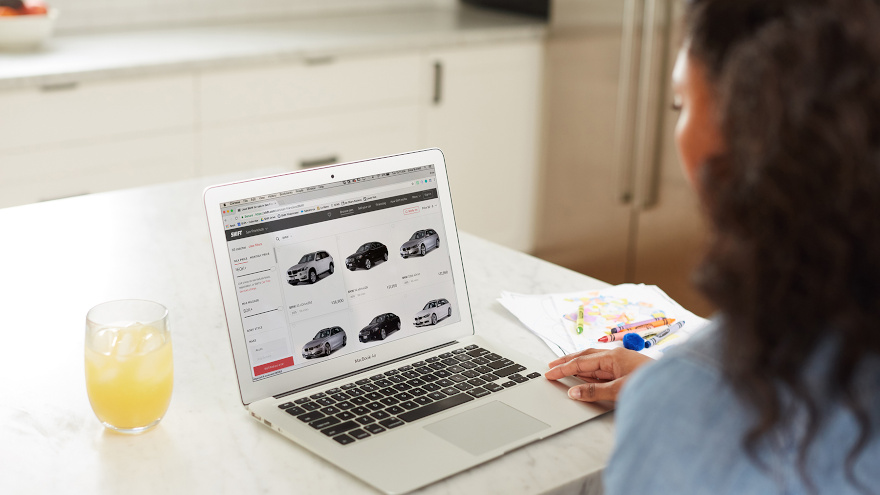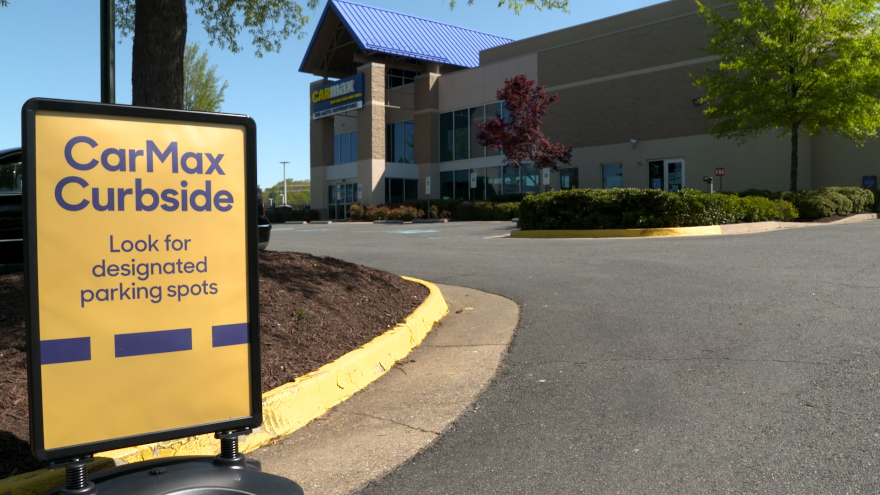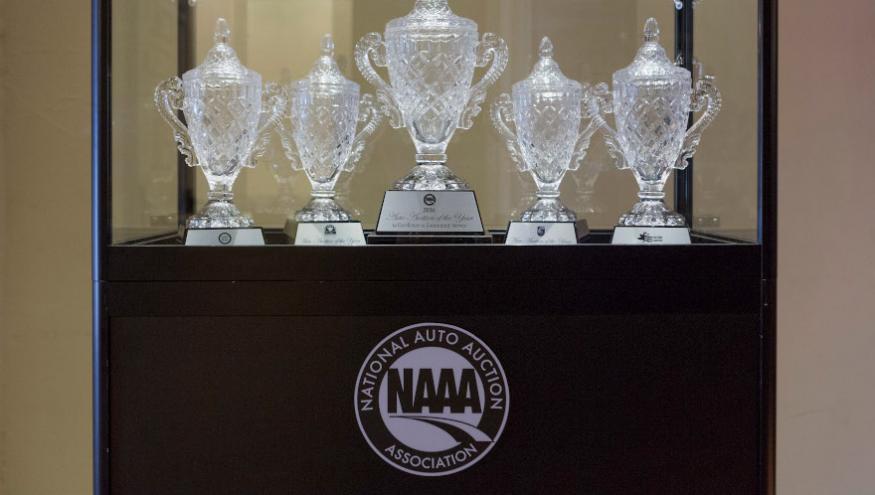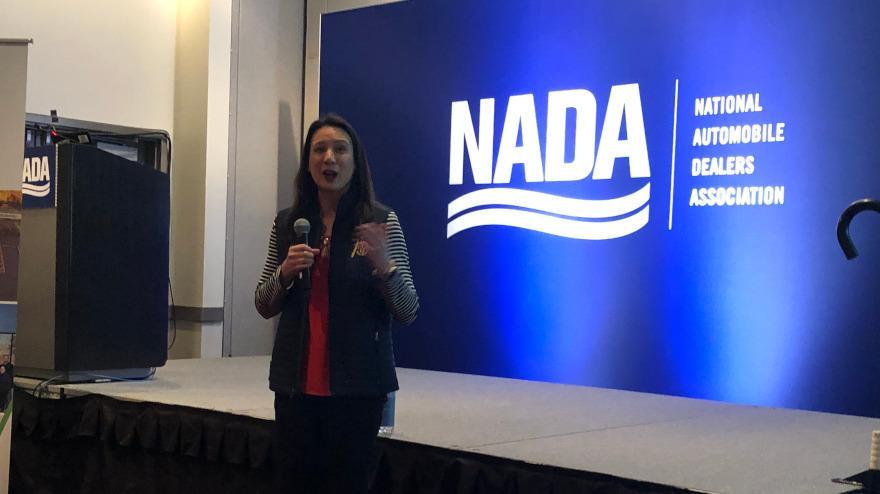Used-car inventory levels at dealerships in the major cities most impacted by COVID-19 are, for the most part, climbing — including a big spike to begin April.
That’s according to a data analysis from CarStory, which continues to track the auto market effects from the pandemic throughout the country, including the most heavily affected cities of New York, Detroit, Chicago, New Orleans, San Francisco and Seattle.
CarStory found that in the week leading up to Friday, each of those cities except for New Orleans saw used inventories “rising sharply” relative to where they were on Jan. 1.
This signals a steep drop in used-car sales, the company said.
As of Monday, average used inventory levels in San Francisco, for example, were close to 109.57% of where they were on Jan. 1. That ratio was at 94.12% on March 1 and 105.65% on April 1, according to CarStory.
CarStory also measured daily used inventory turns on a national basis, looking at daily acquisition and sales rates to get a sense of where dealers stand.
“In a healthy market, the number of new vehicles coming onto a dealer’s lot tends to equal the number being sold,” CarStory president and chief product officer Chad Bockius wrote in the analysis.
“But what happens when a pandemic forces dealers to shut their doors or reinvent how they sell? How does the eroding wholesale market affect retail acquisitions? By looking at the daily acquisition and sales rate we can get a good picture of the impact,” Bockius continued.
The first two months of the year continued the market’s steady inflow and outflow of used inventory, he said. That is, until March 7, when used-car sales began to fall.
“The drop in acquisitions didn’t start until 10 days later. And while we are starting to see a slight uptick on both fronts, it’s still too early to tell if it is noise or a trend,” Bockius said.
Looking specifically at the most severely impacted metro (New York), CarStory found a similar trendline but with a “more severe” impact.
“We see a 75% drop in sales since February 27th. Acquisitions fell faster and even more severely, dropping 80% over three weeks,” Bockius wrote. “Here again, we are starting to see an upward movement, but it will take another few days to know if this is a trend.”
Trade-in leads on rise
One source of used-car inventory for dealers, of course, is trade-ins.
TradePending, a provider of trade-in tools, has a view into the website traffic and trade-in lead flow for more than 2,500 U.S. franchised dealers.
In addition to providing a deep dive into website traffic patterns over the past four “Covid” weeks (March 16-22, March 23-29, March 30-April 5 and April 6-12), TradePending shared some data and analysis around in-bound trade-in lead flow during COVID-19.
Interestingly enough, there were 19.9% more trade-in leads last week (April 6-12) than what is considered to be last “normal” week in the auto market (March 9-15) before markets began to shutter.
During what TradePending called Covid Week 1 (March 16-22), trade-in leads were down 4.3% from the last normal week. But the following week, they were up 15.5% over the last normal week, then rose 7.4% for the week of March 30-April 5.
“As each week progresses, we continue to see healthy growth in lead volumes comparing ‘Covid’ weeks to that last ‘normal’ week,” TradePending said in the analysis.
“While traffic to dealers' websites increased in week four, the traffic does look to be more highly motivated, as reflected by the increase in lead volume,” the company said. “The hypothesis: As less people are able to visit showrooms, they're making better use of the online tools available to them.”
TradePending also broke down the data by day of the week, showing the percent change in trade-in lead volume for each day versus the corresponding day in the last normal week.
For last week (April 6-12), some of the daily changes were quite remarkable, particularly Friday’s. Trade-in lead volume that day was up 51.3% from March 13, the last “normal” Friday.
For each of the four Covid weeks, trade-in leads start off slow (Mondays and Tuesdays have generally been softer than the last normal week), before picking up midweek on into the weekend.
In each of the four Covid weekends, the Friday, Saturday and Sunday trade-in lead traffic has been up double-digit percentages from the last normal week, according to the TradePending data.
Federal Trade Commission senior attorney Lesley Fair compiled a list of seven recommendations for small businesses — which could certainly include dealerships — in an effort to overcome the challenges created by the coronavirus pandemic.
“For small businesses, there’s never been a time when ‘business as usual’ has been so unusual,” Fair wrote on Wednesday in the FTC blog post that included the suggestions.
Here is Fair’s rundown:
1. Keep your lender in the loop
If you have existing financing and are struggling to make payments, Fair emphasized that small businesses should maintain open lines of communication.
“You may not be able to stroll down the street to chat with your banker, but many financial companies have extended their menu of online options,” she wrote. “Some have special portals and hotlines for small businesses and consumers who need to ask for deferrals or other relief.”
2. Check your contract for provisions that could apply
If dealer operators and principals haven’t already, Fair suggested they should read through their financing documents. Perhaps there could be provisions for requesting lower payments based on decreased sales
“Does the current situation — for example, a government order in your locale requiring businesses to suspend operations — allow you to stop making payments at least temporarily? What steps do you need to take? Your lender or provider is dealing with many businesses in the same straits,” Fair wrote. “Contact the company to talk it through.”
3. Seeking new small business financing? Keep a cool head.
Fair acknowledged that cash-strapped businesses like dealerships might be tempted to take financial actions they might not normally do.
“Now more than ever, it’s wise to think through your options before committing to a financial transaction — a traditional loan, an online arrangement, or any other product,” Fair stressed.
“Comparison shop to determine how much it will cost and whether you can afford repayments,” she continued. “If you sense a sales person is rushing you through the process, that alone should be sign to slow things down.”
4. Understand the details of the deal.
Just like personnel in the dealership finance office are supposed to do for vehicle buyers, Fair emphasized that small-business owners need to understand the intricacies of a lending arrangement by asking the provider for clarity. She pointed out that some business owners are looking for financing through non-traditional sources, including online options.
“But many of those transactions are different from what you may be used to,” Fair wrote. “Scrutinize the offer before signing on the digital dotted line.
“What are the consequences if you can’t make timely payments? Do you have to offer a personal guarantee? Does the lender insist on a confession of judgment? If there is anything you don’t understand about the offer, call or email the lender or provider,” she continued.
“Don’t commit until you’re satisfied with the answers, but also don’t rely on oral representations. Get the details in writing and closely review the proposed terms or contracts,” Fair added.
5. Consider what resources may be available from government agencies like the Small Business Administration
Industry organizations like the National Automobile Dealers Association and National Independent Automobile Dealers Association have been urging their members to seek assistance through the resources provided by the CARES Act. Fair reiterated the same advice.
For example, the SBA’s Coronavirus Relief Options page offers information about the Paycheck Protection Program, Economic Injury Disaster Loan Emergency Advances, SBA Express Bridge Loans, and SBA Debt Relief.
6. Protect your business from COVID-19 fraud
The FTC said it has identified at least seven coronavirus-related scams targeting small businesses.
“And we’re hearing reports of more,” Fair wrote while noting that some businesses are getting unsolicited calls or email or have seen websites claiming to offer an “inside track” to expedite financial relief from the SBA or other agencies.
“Some brazen scammers are even impersonating government officials,” she added. “If anyone contacts you out of the blue and says they need upfront money or personal information so you can get a government business loan or a personal payment, it’s a scam.
7. If you spot deceptive or unfair practices, report them to the FTC
Finally, Fair instructed small businesses to alert the regulator of potentially suspicious activity.
The FTC created a special online portal here to report experiences with questionable conduct related to small business financing.
Based on auto industry analyses, a rough March for used-vehicle sales appears to have spilled over into April, and as PureCars says in its latest COVID-19 report, dealers are “facing obvious headwinds” in pre-owned.
But, some silver linings: the dive in used- and new-car sales appear to have hit its trough, according to Cox Automotive. And there are dealers who are realizing “some success” with strategies to shore up their used-car sales, as PureCars outlines in its report.
First outlining the challenges, PureCars said in the report, “Aggressive APR offers mean used payments can be higher than new, RO data suggests shoppers are fixing versus trading up or out, auction prices continue to fall, and wholesale markets have all but stopped operating as a way to dispose of depreciating used assets.”
But there are some remedies dealers are finding that work. PureCars emphasizes that some used-vehicle shoppers “are sitting on the sidelines,” so “aggressive” strategies in pre-owned might not be the best course at the moment.
“However, some dealers are gamblers and we’ve seen some success with the following tactics; low-funnel search awareness, social budget reallocations to move ‘up funnel’ to reach broader in-market shoppers to take advantage of falling CPM rates, overlay ORACLE dataset to hyper-target local in-market audiences, aggressively (re)pricing vehicles to drive intent, and piggy-backing on OEM CPO program benefits where available,” PureCars said.
Here's how the numbers have shaken out recently in pre-owned.
Franchised dealers had a 24% drop in used-car retail sales the week ending April 5, according to J.D. Power Valuation Services, following 32% sequential and nearly 40% year-over-year declines in March.
Of the 25 states that provide vehicle sales data to Cross-Sell Interactive (which is part of Dominion Dealer Solutions), only one shown in a state-by-state comparison graph — North Dakota, which was up 10% — showed year-over-year growth in combined new- and used-vehicle sales in March.
The heaviest decline shown in Cross-Sell's data set was in Missouri, where combined new and used sales were down 52%. New York was next at 46%.
Several others, like Texas (down 28%), Michigan (27%), Indiana (25%) and Colorado (25%), had declines near 30%.
Overall, new- and used-vehicle sales fell 19.6% year-over-year, among states in Cross-Sell's data set.
In the 25 states that report data to Cross-Sell, there were 1.91 million used-vehicle sales for March, which was up 9.1% from the 1.75 million used sales in February.
However, the picture changes when looking at year-over-year comparisons.
Used-car sales in the 25 states were down 21.1% from the 2.42 million sold in March 2019.
Total used-vehicle sales in March fell 18.4% year-over-year, according to Cox Automotive, which estimated the used-car SAAR for the month at 32.0 million. It was 39.2 million in March 2019 and 39.8 million in February, Cox said.
For retail used (which Cox Automotive defines as sales from either franchised dealers or independent dealers, excluding private-party sales), the SAAR was approximately 17.3 million for March. It was 20.6 million a year ago and 21.2 million in February.
In addition to the 18% drop in total used sales for March, Cox Automotive also observed a 38% decline in new-car sales, with the downturn in both picking up as the month went along.
A bit of a silver lining though, as Cox Automotive said in an analysis: “The decline in sales bottomed last week, as we’ve seen seven consecutive days of improvement in year-over-year declines of both new and used through Wednesday, April 8.”
Toby Russell of online car marketplace Shift says the company realizes that auto sales have been hit hard by the COVID-19 crisis.
“I think that the COVID environment is going to really cause an acceleration of the transition to online shopping,” said Russell, who is co-chief executive officer of Shift, in an interview with Auto Remarketing.
But Shift also realizes that many dealerships don’t yet have what the company’s communications manager Hannah Golden describes as “fully digitalized transaction capability.”
“There’s been a lot of pressure for them to get there,” Golden said.
She added that the company is looking at how the COVID-19 pandemic has fundamentally changed consumer behavior. Although the industry has seen a hit on sales, Shift has not slowed down, and the company has instead unveiled several new initiatives to help dealers get through the crisis.
Helping challenged dealer groups
The company on Thursday said it would offer its proprietary software to a limited number of dealership groups that might have experienced a decline in sales as a result of COVID-19. Shift wants to work with dealership groups operating multiple stores that they have shut down or that have experienced significant impact from social distancing orders.
Shift says some dealerships are able to list their inventory online. But few, if any, can facilitate a fully digital transaction, the company said. Even fewer can offer test drives to customers during the current environment when stores are closed or customers are not willing to go to them.
The company has worked for several years to develop systems enabling no-contact, fully online sales of used cars, with and without a test drive. Believing that test drives remain crucial to the customer's purchase, the company has created a method of delivering test drives to the customer’s location.
Shift also uses online transactions and offline transactions using a custom-built mobile point of sale application on an iPad. All transactions come with e-contracting technology, digital DMV title transfer, and F&I products.
The first Pulsar customer
In related industry news, Russell said Shift would be the first customer and car company to use conversion automation tool, Pulsar AI.
With the tool, car dealerships can automate lead engagement by autonomously contacting, engaging, qualifying and following up with any lead “via natural, automated two-way conversations.” Pulsar says it integrates with the dealership’s existing CRM, inventory management and DMS systems to answer every specific question that customers ask and follow up until they are engaged.
“Is this car light blue or dark blue?” “Does this car have a sunroof?” Those are examples of questions the Pulsar system can answer.
Russell mentioned a statistic showing that more than 90% of prospective buyers start their vehicle shopping experience online.
“In essence, retail auto shopping is dead,” Russell said.
He added that customers want to interact with a car seller not only online, but also over email or through interactive digital media to be able to ask questions about a vehicle.
“Consumers are shifting all the shopping behavior online and are rapidly moving their purchasing and interaction behavior online,” Russell said.
He continued, “And so we see Pulsar and these other elements as critical steps, and with the current environment, the need for safety and non-in-person interaction, I think it’s just going to massively accelerate that transformation and that transition.”
Russell said answering prospective customers’ questions that come over the web is a challenge for dealers, especially if a customer is shopping online during non-business hours.
“It’s going to be really hard to staff somebody who’s there to answer all the questions about the cars or even knows about all the cars,” Russell said.
He said Pulsar has used Shift data to create answers to questions based on the interactions Shift has had with customers, and Pulsar has worked to enable computers to respond to customers’ questions.
That, Russell said, “is pretty transformational in the way you think about helping someone shop for and select the vehicle that’s right for them in an online setting.”
Additional Shift programs
Shift is adopting additional programs such as no-contact test drives. For that program, a Shift concierge comes to the customer’s home, and before handing the keys to the customer for a test drive, the concierge will wipe down frequently touched surfaces such as the interior and exterior of the car and keys.
Shift will also waive the direct shipping fee for direct online sales.
The Essential Workers Program/Community Pricing Initiative is another Shift program. The company will provide special discounts on vehicles for essential workers such as medical professionals, utilities operators and grocery store staff members who need personal transportation. The Community Pricing Initiative temporarily lowers prices on some inventory to help members of “the larger community” afford reliable transportation if the crisis has affected them.
Regarding the announcement that Shift will offer its proprietary software to a limited number of dealership groups facing COVID-19 challenges, Russell said the future will see two types of car dealers: The first are those that can address customers’ online needs, not just at the shopping stage, but “all the way through the funnel.”
The second type of dealer is “the folks who don’t make it,” Russell said.
“It's that classic history of American retail,” Russell said.
He continued, “And so what we’re saying at this point is we have shifted implementing a lot of these technologies and have built a platform that makes that easy. And we’re open to, and we'll be exploring with, other major dealers that want to do that, the use of this platform.”
If you’re like many Americans, there’s a good chance you have used curbside pickup in the last four weeks to secure your groceries, prescriptions or even takeout from your favorite restaurant.
And now, CarMax is offering consumers that same option for car buying.
The country’s largest used-car retailer announced Tuesday the launch of CarMax Curbside, which gives shoppers a contactless and socially distant way to complete their vehicle purchases.
With this program, consumers go online to conduct most steps of the buying process: vehicle selection, finance pre-approval, generating a trade-in offer, etc.
Customers can also test-drive vehicles by themselves. When it’s time for vehicle pickup, a new option for them now is to pick it up curbside, without having to go inside the store or have any contact with an associate — an option available at most CarMax stores, the company said.
“We’ve heard from customers that during this time, they need access to reliable vehicles to pick up groceries, visit the doctor or commute to work,” CarMax president and chief executive officer Bill Nash said in a news release.
“We’re focused on providing a safe car buying experience and helping our customers any way we can. Whether it’s through home delivery or curbside pickup for customers who need to purchase a vehicle, or through service maintenance for customers to keep their cars on the road, we’re here to help.”
CarMax is also continuing to provide home delivery at many open locations.
The seven-day return policy continues, where consumers can return a purchase for any reason and receive a full refund.
Most of the company’s service department remain open for warranty work, maintenance or repairs.
“CarMax is following government mandates and keeping locations open where permitted to support customers’ essential needs for reliable vehicles,” the company said in a news release.
Other measures CarMax has taken include:
— Extending the duration of its 90-day limited warranty, a move that was effective March 16 and is applicable on purchases on or after Dec. 17.
— CarMax Auto Finance offering payment assistance for existing customers who need help and waiving late fees for payments due in March or April.
— Implementing steps at its locations to reduce risk of COVID-19 exposure, including social distancing practices, enhanced sanitation/cleaning and more.
The COVID-19 pandemic has impacted the retail automotive industry throughout the country, including the pre-owned side of the business.
To drill down into how used-car sales are faring in one particular market – our own – Auto Remarketing turned to monthly analysis data from Cross-Sell Interactive, which is part of Dominion Dealer Solutions.
Through Cross-Sell’s online portal, we set market area parameters to Wake County, N.C., home to our parent company Cherokee Media Group’s headquarters in Cary (and the kitchen table in Raleigh from which this story is being written).
In March of this year, Wake County dealers sold 17,288 used retail vehicles and 234 used fleet, according to the Cross-Sell Interactive.
The data shows that 11,829 of the retail units and 218 of the fleet units were titled in the trade area.
Meanwhile, 5,475 (retail and fleet combined) were what Cross-Sell refers to as pump-outs (sales to buyers outside the trade area).
In March 2019, Wake County dealers were 18,218 used retail sales and 799 used fleet sales. Of those, 12,812 retail units and 680 fleet units were sold in the market area. A total of 5,525 used units were pump-outs.
One interesting metric to watch is that of Carvana Raleigh. In March 2019, it had 418 used retail sales, 280 of which were pump-outs.
This March, it had 538 used retail sales, 327 of which were pump outs.
Broadening our scope to finance, the largest used-car lienholder in Wake County for March was the State Employees Credit Union, with a 10.1% share, followed by Capital One Auto Finance (7.3%), Wells Fargo Bank (6.4%) Coastal Credit Union (5.9%) and CarMax Auto Finance (4.8%).
A year ago, SECU led with a 9.7% share, followed by Wells Fargo Banks (7.5%), Coastal Credit Union (7.1%), Capital One Auto Finance (5.6%) and Ally Financial (5.4%).
It will be interesting to see how April sales turn out. Wake County’s stay-at-home order did not go into effect until March 27. North Carolina’s went into effect March 30.
While there are still a few locations that have suspended operations, the auto auction community at large is back on track with simulcast sales, with “just about everybody” running these virtual auctions, including the majority of independents, along with corporately owned ADESA and Manheim.
National Auto Auction Association chief executive officer Frank Hackett shared this update and more with Auto Remarketing, following NAAA’s regular teleconference with the major players in the auction business on Monday.
Hackett also lauded digital facilitators like OVE and Auction Edge for their work in helping independent auctions turn to online sales.
As previously reported in Auto Remarketing, dozens of ADESA auctions in North America were set to run simulcast-only sales last week, following a roughly two-week stoppage of all ADESA physical sale operations (which included Simulcast) announced on March 20, in response to the COVID-19 pandemic.
Meanwhile, at Manheim, president Grace Huang shared some updates in this Auto Remarketing Podcast episode from Friday, where she also walked us through the days leading up to the auction company shifting to Simulcast-only sales and how that process was implemented. Huang also discussed how dealer behavior has shifted digitally these past four weeks and how Cox Automotive is helping dealers navigate through several aspects of their business.
(Story continues below)
Mercer, Marks join auction call
Consultants Glenn Mercer and Gene Marks also participated in the industry teleconference, sharing economic/industry forecasts, financial options for auctions and a potential Cash for Clunkers reboot.
Regarding the latter, Hackett called it a “concern” for the auction community.
"They crushed all those cars,” he said of the program that implemented about a decade ago. “We're not opposed to a Cash for Clunkers program. But what we are opposed to is if those cars come off the street, crushing them. We just don't want the cars crushed … those are the cars that run through the lanes.
“And it just hurts everyone when they take them off the street. Because those are the cars that some people can afford to buy, that we think are important to keep in the market. Some people aren't in the market for a new car,” Hackett said.
CarMax holding 42 simulcast auctions this week
Elsewhere in the auction industry, CarMax Auctions will host 42 simulcast sales this week. A company spokesperson said via email Friday that those sales were slated to start Monday.
CarMax helped its auction customers set up virtual accounts last week to facilitate the new sales format.
There are more than 70 CarMax Auctions locations in the U.S. Simulcast sales will be held this week at all auction locations that are open.
Fitch Ratings offered some sobering assessments of current dealership finances on Monday when revising its dealer floorplan (DFP) asset-backed securities (ABS) performance outlook, mentioning some of the same unprecedented conditions dealer groups and principals now are facing as vAuto founder Dale Pollak did in an open letter posted on Good Friday.
Fitch revised this particular ABS outlook to negative as U.S. auto dealer networks backing these ABS transactions are suffering from a collapse in sales, shrinking revenues and growing liquidity risks.
“The combination of these factors has weakened dealerships' financial wherewithal and could impair their ability to repay dealer floorplan credit lines,” analysts said in a report sent to Auto Remarketing. “Fitch is actively monitoring dealership health and ABS transaction performance metrics, including trust monthly payment rates (MPR).”
Saying a dealer was “out of trust” oftentimes meant criminal activity occurred like a 17-count federal indictment against a Pennsylvania dealer surfacing last summer. But that’s certainly not the case nowadays as Pollak articulated at the beginning of his letter.
“My heart goes out to dealers and their families during the current COVID-19 crisis,” Pollak wrote. “I cannot imagine the loss, pain and uncertainty that every dealer is feeling at this time.
“In my time as a dealer, we saw recessions and other disruptions that caused tough retailing conditions,” he continued. “But none comes even close to what dealers are experiencing right now.”
Fitch pointed out its analysis showed strong trust performance through March along with trust dealer concentration limits and structural protections in place, including available credit enhancement.
“While heading into this downturn in better shape, Fitch believes dealer networks are facing a significant demand stress that will weigh down revenues and may threaten the viability of smaller dealerships,” Fitch said in its report.
“Additionally, material auto wholesale market operational challenges will complicate purchasing and selling of used vehicles as most wholesale auctions are closed, and Fitch has observed recent declines in wholesale auction activity and used values,” the firm continued.
Auto Remarketing recently reached out to experts from Cox Automotive, KAR Global, J.D. Power Valuation Services and Black Book to compile reports that went into more detail about the potential for a wholesale price rebound as well as how volume is tracking. The reports are part of having a Cherokee Media Group Premium Membership.
Details to become a premium are available here.
Turning back to store finances, Fitch explained its dealer floor plan outlook is based on a coronavirus scenario that includes a sharp sales contraction through the middle of the year, stabilization during the third quarter and a recovery unfolding in the fourth quarter and going into 2021.
“In this scenario, dealership networks are under heightened pressure in the next three months, including ABS trust MPR metrics as mentioned,” Fitch said.
“As the U.S. has been placed under lockdown and social distancing is in place, dealership foot traffic has collapsed with internet sales unlikely to make material impact on sales or revenues,” analysts continued. “Plummeting sales has come on the back of government-mandated closures of dealer showrooms enacted by state authorities, and to date the majority of showrooms are closed while only service/repair divisions remain open as essential services.
“This time of the year is typically the strong spring sales period, but this is not the case currently and sales have sunk through near mid-April now and trying to forecast sales is too uncertain to predict,” Fitch went on to say.
Fitch pointed out U.S. dealer networks entered March in a “stronger” position than when they faced the 2008-2009 Great Recession, with overall more stringently managed debt profiles, solid profitability, relatively stable costs and networks that are essentially not “overdealered” with tight capacity across most markets.
While many larger and publicly traded franchised dealer groups have issued furloughs, Fitch gave a cautious assessment about single-point stores.
“All dealers face heightened risks from the massive hit to sales and revenues, and thus been forced to deploy cost-cutting measures in all operational areas, including widespread employee layoffs and furloughs,” Fitch said. “They have looked for support for their related OEM and captive finance lenders as mentioned prior. It is the smaller, more vulnerable dealerships that face greater short-term threats to their businesses, specifically dealers with one or two locations that are thinly capitalized with low levels of liquidity or cash on hand to weather this crisis.
“While Fitch acknowledges that government support may provide support to OEMs and dealer networks, the form of support and details are unclear at this point and the agency will consider implications as more information becomes available,” analysts continued. “OEMs are stepping in to varying degrees offering retail loan and lease payment deferrals, and high incentive sales programs to boost sales and support dealership revenues, but this is not expected to material offset the massive decline in overall sales in the short term.”
Like Fitch, Pollak also recognized that the next few months are going to be crucial for dealership survival. He outlined an array of recommendations about what dealers could do with their current used-vehicle inventory while working with potential buyers in revamped ways to retail units and generate crucial revenue.
Pollak closed his passionate letter with this line of thinking.
He wrote, “the current crisis proves that we can make significant changes in our lives and businesses when circumstances demand them. This is no small achievement.
“It’s also a reality that gives us great optimism and hope about our ability to face what will ultimately be a much different future,” he continued. “Take a moment. Recognize how quickly we’ve changed beliefs and behaviors in the current crisis.
“Then, let’s remember how far we’ve come, in such a short amount of time, as we face the changes life and business will bring us in the days and weeks ahead,” Pollak concluded.
Lane activity might still be way down, but Black Book offered a robust amount of information through its latest installment of Market Insights on Monday.
While noting no-sale rates remain high, analysts touched on 10 other data points while Black Book’s representatives still collected observations from the virtual sales happening during the coronavirus pandemic.
To help navigate through the challenges of today’s wholesale market, Cherokee Media Group recently began a series of whitepapers delving deeper into best practices and more. The opening segment is available for purchase here for a discount of more than 50%.
As the industry can arm itself with that kind of knowledge, Black Book pointed out that consignors and dealers are finding tumbling prices, according to the newest Market Insights.
“No sales continue to plague the auctions and values remain on a downward slide,” Black Book vice president of automotive valuations Laura Wehunt said in the report.
According to volume-weighted data, analysts determined overall car segment values decreased by 0.99% this past week, marking the third consecutive week of large depreciations to push the three-week average to 0.89%.
Black Book indicated the largest car segment declines for the past few weeks have been the mainstream and fuel-efficient compact and sub-compact car segments. This past week, the firm added the mid-size segment also took a tumble as gas prices continued to decline with many locations retailing fuel below $2 per gallon.
Again, according to volume-weighted information, analysts found overall truck segment values — including pickups, SUVs and vans — dropped by 0.62% last week. The amount wasn’t quite as much as the previous week when Black Book spotted a 0.73% drop-off. Analysts calculated the three-week average decrease at 0.57%.
“The surprise in the truck segments last week was the continued depreciation of the traditionally strong retaining small pickup segment,” Black Book said. “The average depreciation for the past three weeks is 1.04%.
“Low fuel prices and increased supply of competition in this segment are softening the values,” analysts added.
Black Book mentioned that a couple of weeks of having their simulcast sales closed, ADESA was able to re-open numerous locations last week.
“Sales rates at most auctions continued to be low, but there were pockets of strength with successful lanes that had conversion rates over 50%,” analysts said. “The success appeared to be driven by a sellers’ reputation for quality vehicles and, in some cases, the pricing/vehicle mix availability.
Analysts went on to note five other observations from the wholesale market, including:
• Typically, during an economic downturn, cheaper, fuel-efficient vehicles retain their value better but, week after week, the compact and sub-compact segments have depreciated at a higher rate than other car segments.
• As for trucks, the luxury segments have been consistently experiencing large adjustments.
• New car incentives are putting pressure on used values for 1- to 2-year-old vehicles. There is also dealer hesitancy to take in these models on trade because of the uncertainty on how far the values will fall in the coming weeks.
• Dealers and remarketers continue to note the widespread demand for the lower condition, higher mileage, rougher units as they are at an attractive price point right now.
• The dealers with sales departments that are open have experienced a drastic reduction in foot traffic, but the conversion rates for the buyers they are getting is high. The people that are buying right now are in a position of needing a vehicle as opposed to passively searching or wanting one. Many dealers are reporting that their internet activity and leads have increased as consumers are at home and spending time researching their next vehicle.
Finally, Black Book closed with a recap of what its representatives stationed at various locations nationwide are noticing. Here is that rundown:
— From North Carolina: “Buyers are still being cautious.”
— From Florida: “Our under $5,000 inventory is the only thing selling well at auction, so we are holding on to everything else.”
— From Virginia: “Buyers are really looking for essential and necessary purchases. My most recent customers purchased because they wrecked the vehicle.”
— From Louisiana: “It seems like wholesale is trending down a little faster than retail right now.”
— From Illinois: “If I had to describe this sale in one word, it would be sleepy.”
Manheim president Grace Huang joined the Auto Remarketing Podcast on Friday and walked us through the days leading up to the auction company shifting to Simulcast-only sales and how that process was implemented.
Plus, Huang shares how dealer behavior has shifted digitally these past four weeks and how Cox Automotive is helping dealers navigate through several aspects of their business.
To listen to this episode, click on the link available below, or visit the Auto Remarketing Podcast page.
Download and subscribe to the Auto Remarketing Podcast on iTunes or on Google Play.


